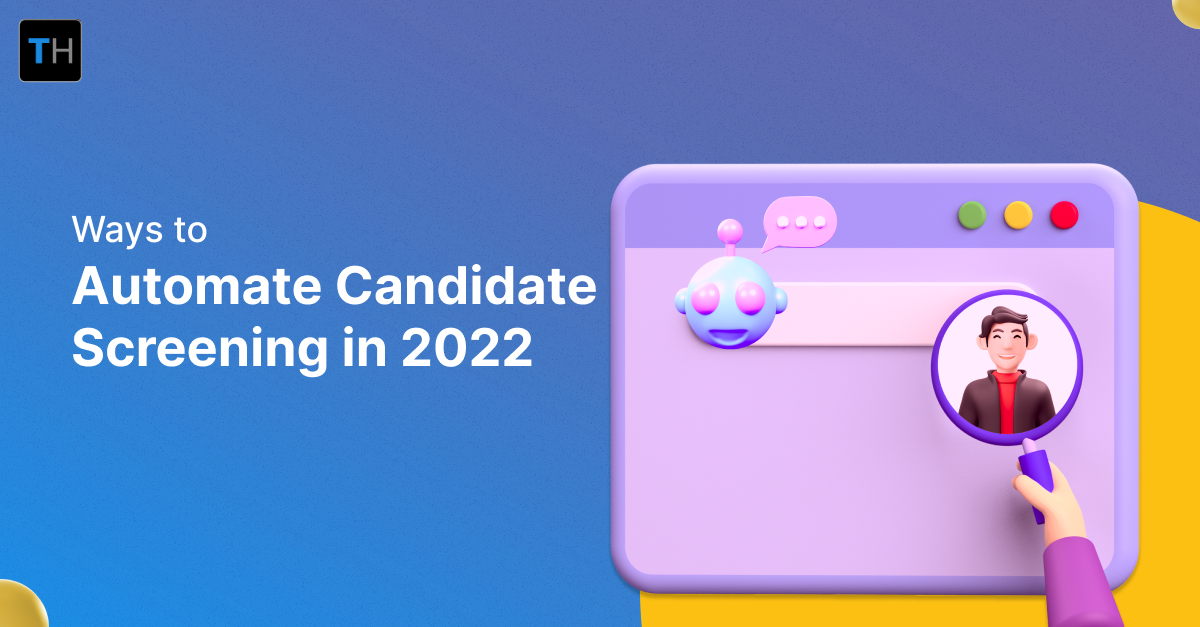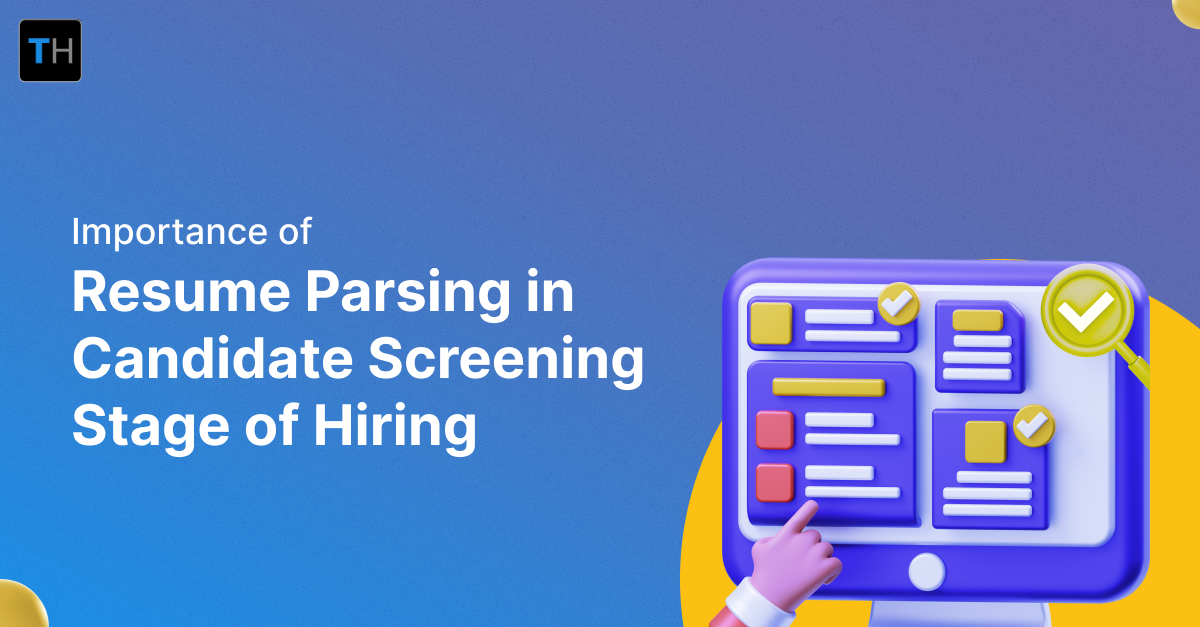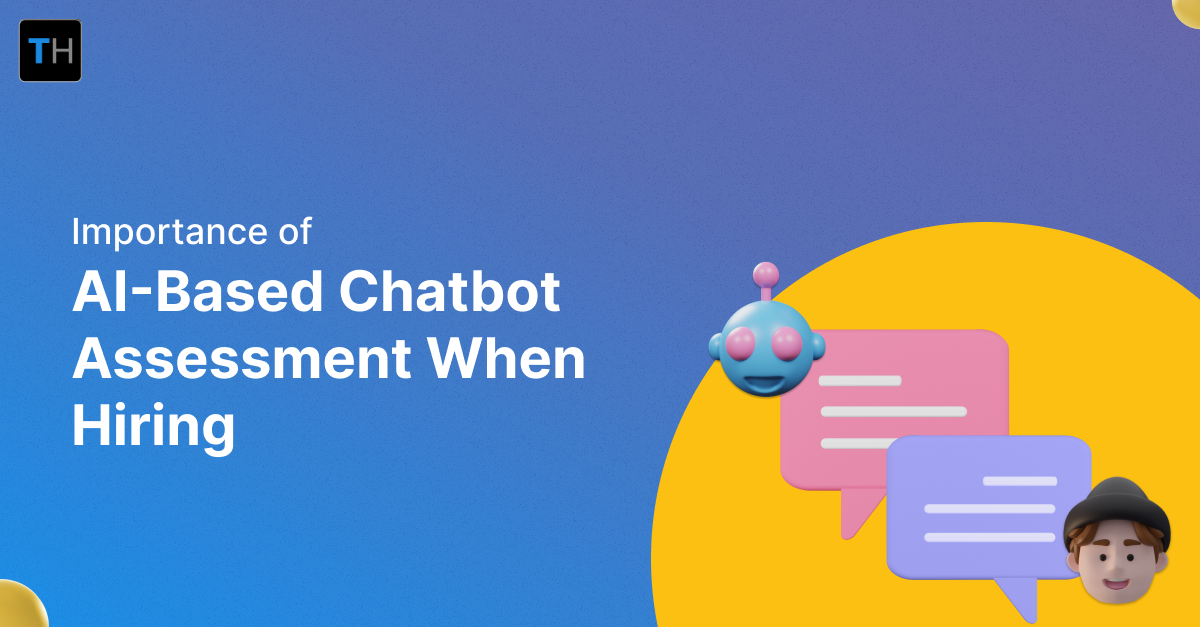Introduction
Finding the right talent is said to be the key to a successful organization however it is not just a day or two of work. It may take a bit longer while also indulging high cost-to-hire methods. A hiring process is said to be efficient only when the cost and the number of days that are involved in the process are kept to as minimum as possible. This can only be achieved if you have a better idea of how to improve your candidate screening process. If you are one of those recruiters who are still following the old traditional methods. Here are some of the tips and tricks that may come in handy to get your hiring game up!
What is the candidate screening process?
Before we dive into how to improve the process let’s take a look at what candidate screening means.
Candidate screening is a process involved in finding the right talent to fulfill the duties of an open position. It covers all the steps right from initial screening to making the final hiring decision to even preparing the offer letter. It can include various steps such as skill assessment, background check, and an interview.
It is one of the most important factors in attracting some of the best talents which include those that are both highly skilled and ones who indulge in understanding the core values of the organization.
Why is candidate screening important?
When hiring candidates one of the most important aspects is to follow the strategic goals that are already decided for the organization. These allow recruiters to find the right talent while also being one of the fittest for the job. Failing to follow these goals will lead to unsuccessful hires and mistakes which leads to a much higher budget being taken for each hiring process.
This is exactly why when candidate screening is conducted, it is needed that the process is carried out efficiently which saves a lot more than just time and money.
Common mistakes while screening candidates
Making mistakes are quite common but getting to know them and how to avoid them is the solution. So here are some of the most common mistakes while recruiters screen candidates:
Not considering candidate experience as a part of the hiring process:
When you hire a candidate it is not just the company that you are placing as a model to the candidate, it is also the brand image that you put forth. This may be at an individual candidate level or a market-wide level, either way, the brand image must be maintained at all times.
Potential customers and employees come from the same community as the candidates that might have attended an interview at your office. Hence treating your candidates poorly just means driving off all the other potential customers and employees that could have been part of your company.
Paying keen attention to details of a candidate:
When screening a resume, recruiters make the silliest of mistakes to run through it while only seeking the skills they need. However, they do miss out on some of the other relevant skills which would have helped the candidate play a better role in the company. Taking such skills into consideration is also a part of the screening process.
Lack of planning:
Screening of candidates is similar to any other process that requires proper planning. Without a proper plan, it might be hard to screen the candidates within the given timeframe. Finding the right talent and understanding their views is also a part of this plan. To save a lot of resources both for the company and the candidate, a plan must be made beforehand.
5 tips to improve the candidate screening process
While there are mistakes that could occur, here are some tips and tricks that could help improve the candidate selection process:
1. Use skill assessment to narrow down the list of candidates
Screening of candidates becomes easier when recruiters search for specific skillsets be it soft or technical skills. For example, with the help of TurboHire’s assessment for the skills based on job requirements, you can be assured that you receive a better idea of what type of candidates you are interviewing.
According to Tomas Chamorro-Premuzic from Harvard Business Review “tests prevent interviewers from accepting or rejecting candidates based on conscious or unconscious biases”. This means that recruiters will be able to judge candidates solely based on their performance and not based on any other factors.
2. Automation and simplification of tasks
Hiring processes always need not be complicated. They can be simplified with the help of automation processes. This not only reduces costs but also speeds up the selection procedure while also being able to improve efficiency. You can indirectly also aim at creating a positive candidate experience with these small steps. Resume Parser, AI-based chatbot assessment, and candidate scorecards are some of the tools that help make the hiring process a bit simple.
While these automated tools do give the desired results, be mindful of the automation errors as well, which is why the human touch is also important in such processes.
3. Optimize your interview procedure
Interviews are one of the most tiring and the most resource-consuming tasks. Simplifying interviews is one of the most important aspects of making a hiring process easier. For this to happen you need to be selective on which candidates you’d like to conduct interviews with and hence leading to cutting down costs and time needed for interviews.
One-way interviews are also one of the main solutions that TurboHire brings about to its recruiters, which allows easier interview conduction. This also allows for better decision-making without having any bias.
Providing the essential information about the interview is also considered to be a part of a better candidate experience. The following information must be specified clearly:
- The duration and scope of the interview
- The number of people who will be present in the interview along with their names and positions
- The address of the link if it’s a video interview
- Time and date on which the interview will be conducted
4. Communication is the key aspect
Keeping candidates posted and letting them know regarding each step of the hiring process will be an important aspect of screening candidates. This is essential as your organization’s image is on the line and you need to maintain the same. Especially in industries such as retail, the candidates that you interview today will be your customers tomorrow.
According to a study conducted by Glassdoor and Aptitude Research Partners in 2007, it was found that about 83% of the candidates thoroughly research companies’ ratings and reviews before they decide where to apply. It can take a lot of effort even if there is a single bad review. Hence maintaining the number of good reviews and ratings is also a necessity.
5. Check what works well and what doesn't
After all, not everything that works for one organization might work for yours as well. It is hence necessary to experiment and try various options and check which one will work for you and which one doesn’t work for your organization. You might also want to keep a track of success after each hiring program and whether the budgets were in line or not. It is observed according to Bersin by Deloitte that the average cost-per-hire was found to be $4,000.
Final words
Finally, recruiting the best candidates is not a piece of cake, but with proper planning and with a streamlined candidate selection process, screening candidates is a task that can be tackled. Not to mention that with each hiring process when the resources and the cost required to reduce, there are more opportunities for a much better hiring process to be implemented. Now that you have an idea of how to improve your candidate screening process why not try and utilize these tips and tricks.
Frequently Asked Questions
How does HR select a candidate?
An HR needs to perform a candidate screening process to select a candidate. There are various stages involved in screening a candidate such as:
- Application
- Resume screening
- Screening call
- Assessment test
- Interview
- Background check
- Reference check
- Job offer
How to pre-screen candidates?
In order to pre-screen candidates, assessment tests are conducted. It is through the performance of a candidate through these tests that the recruiter gets to know about the candidate and their capacities.
Is a Resume Parser useful when performing large applicant screenings?
Resume Parser is one of the best and most useful tools that help recruiters go through a large number of applications. If there are multiple openings with about 1000+ candidates each applying for the position, then recruiters will need assistance in checking all these tools. Resume Parser acts as this assistant for all the recruiters.
How do you screen candidates' resumes?
Recruiters check the resume of a candidate to find relevant information that will help them decide whether the candidate is a right fit for the position or whether they are not. Screening a candidate’s resume will also allow a better understanding of the capabilities of the candidate.
What does screening mean?
Resumes contain a basic information section about the candidate along with other details regarding skills and education information. Going through this information is exactly what screening a candidate’s resume means. Screening the resume helps gather relevant information for hiring a candidate.




















